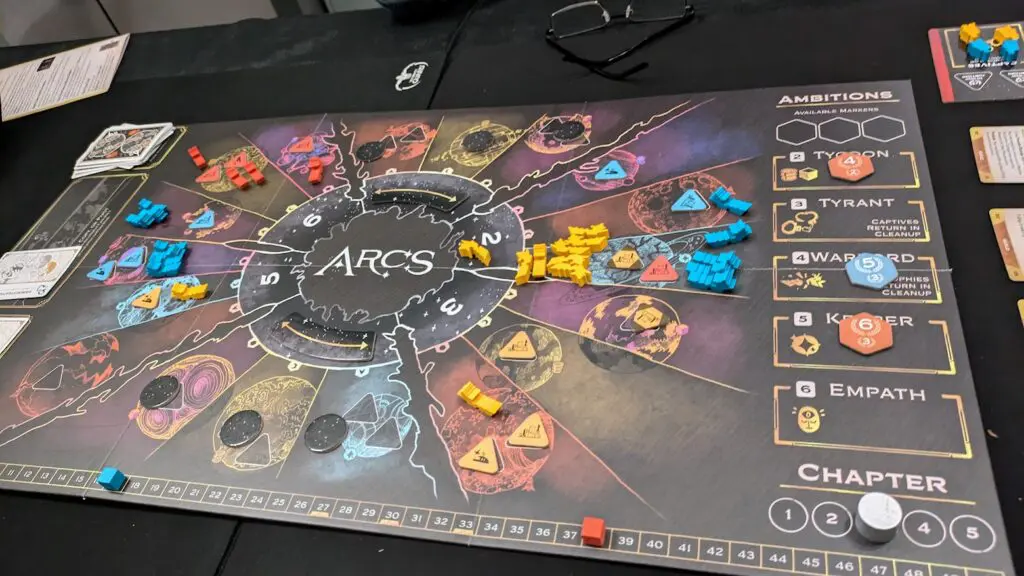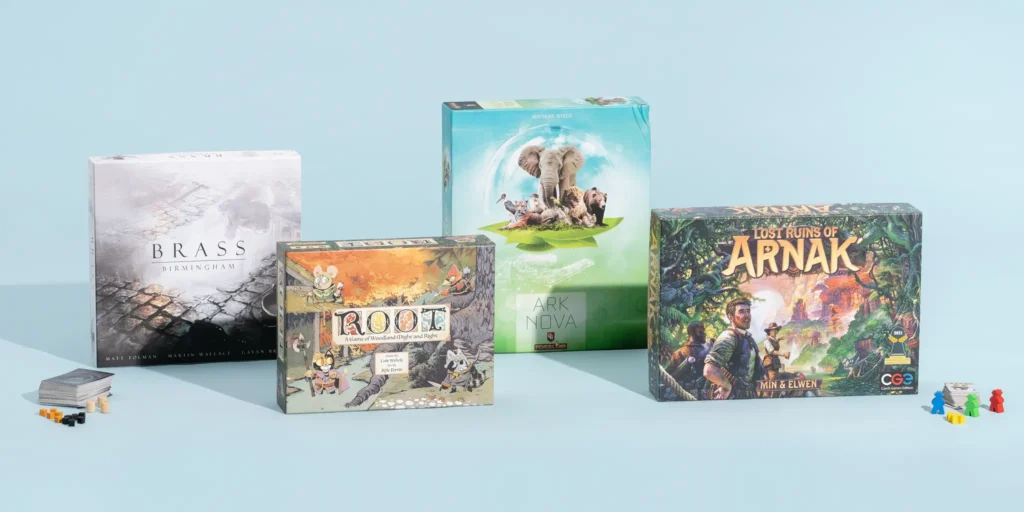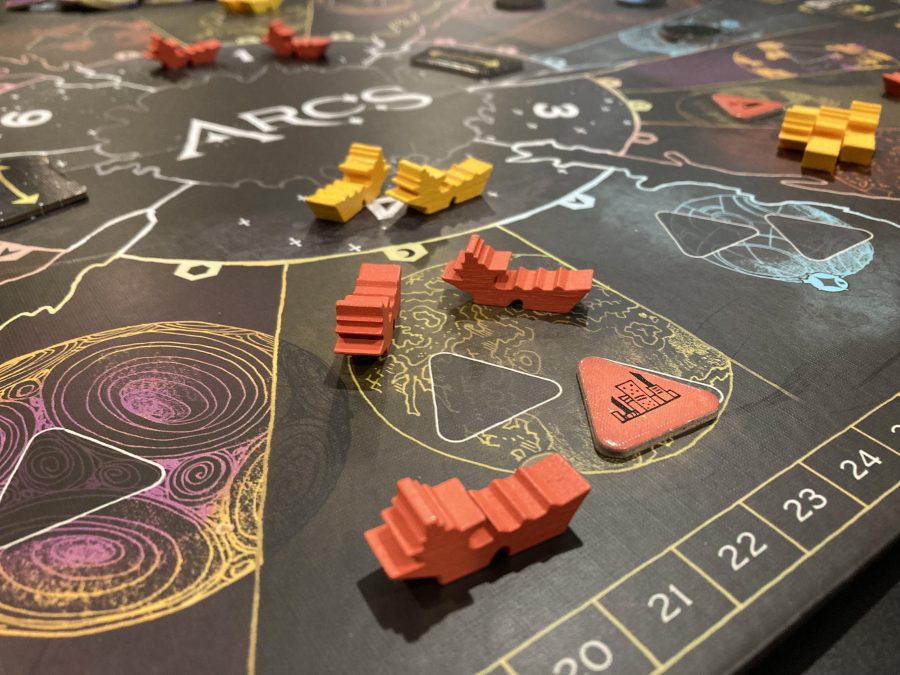Leder Games is well known in the board gaming world for producing innovative, asymmetric strategy games like Root, Vast, and Oath. Their newest title, Arcs, continues this legacy—set in a crumbling galactic empire where politics, war, and ambition collide. One of the most talked-about aspects? Conflict.
In this guide, we explore Generic Leder Games: Arcs – Conflict, offering a strategic overview, game mechanics breakdown, and why Arcs stands out in the world of sci-fi tabletop games.
🧠 What Is “Generic Leder Games: Arcs – Conflict”?
The phrase refers to:
- “Generic”: An overview or introduction for all levels of players
- “Leder Games”: The publisher known for deep, narrative-driven games
- “Arcs – Conflict”: A core system in Arcs, where player interaction is driven by strategic warfare, political agendas, and long-term consequences.
Arcs is a modular sci-fi board game where each play session can grow into a campaign, with evolving storylines and unique conflict-based decisions.
🚀 Overview of Arcs by Leder Games
| Feature | Description |
| Game Type | Sci-fi strategy board game |
| Player Count | 2–4 players |
| Play Time | 60–120 minutes per session |
| Mechanics | Dice drafting, modular campaigns, asymmetric powers, emergent storytelling |
| Publisher | Leder Games |
| Designer | Cole Wehrle (also designed Root and Oath) |
Arcs combines space conquest with political maneuvering and personal ambition, where your choices lead to branching narratives across multiple sessions.
⚔️ Understanding the Conflict in Arcs

Conflict is at the heart of gameplay in Arcs. But unlike traditional war games, Arcs redefines conflict as more than just combat—it’s about control, negotiation, betrayal, and long-term strategy.
🔥 Types of Conflict in Arcs:
- Territorial Disputes
- Players clash over critical regions of the galaxy. Control grants resources, influence, and power.
- Players clash over critical regions of the galaxy. Control grants resources, influence, and power.
- Political Conflicts
- Players vote, make deals, or backstab one another in story-driven decisions. Outcomes alter the course of the campaign.
- Players vote, make deals, or backstab one another in story-driven decisions. Outcomes alter the course of the campaign.
- Personal Ambitions
- Each player has secret or public goals that often conflict with others’. This creates tension and shifting alliances.
- Each player has secret or public goals that often conflict with others’. This creates tension and shifting alliances.
- Resource Wars
- In the scarcity of space, competition over technologies, fleets, or artifacts sparks strategic wars.
- In the scarcity of space, competition over technologies, fleets, or artifacts sparks strategic wars.
🧩 Key Conflict Mechanics
🎲 Dice-Based Action Selection
Players choose from a shared dice pool to perform actions. This mechanic creates dynamic turn order and tension as players must adapt to limited options.
🌌 Campaign Legacy Mode
In the campaign mode, decisions from one game carry over. A major conflict in session one could create a new faction or narrative arc in session two.
🤝 Diplomacy with Consequences
Alliances and betrayals are common, but they’re not easily forgotten. The game remembers—through evolving story modules and political consequences.
🛠️ Customizable Factions
Factions can evolve during the game. A pacifist can become a warlord. A militarist might become a rebel. It’s all shaped by how conflict is handled.
🎯 Strategy Tips for Navigating Conflict in Arcs

- Don’t Overextend
Winning early battles feels good—but can leave you vulnerable later in the campaign. Balance offense with long-term stability. - Use Conflict as Leverage
Sometimes, just threatening a war gives you the upper hand in negotiations. Use bluffing strategically. - Read Your Opponents
Personal ambition cards shape how players behave. Watch their moves to guess their secret goals and stay a step ahead. - Think in Arcs (No Pun Intended)
Remember, each session builds a story. Focus not just on this game—but how your choices will ripple into future games.
🌟 What Makes Arcs Different from Other Conflict-Based Games?
| Feature | Arcs | Traditional War Games |
| Conflict Scope | Political, narrative, military | Primarily combat |
| Game Length | Modular sessions (1–3 hours) | Often long and dense |
| Replayability | Extremely high due to evolving campaigns | Often linear |
| Player Roles | Can shift during campaign | Usually fixed |
| Story Integration | Choices affect future games | Often isolated mechanics |
Arcs combines the emotional weight of storytelling with the thrill of strategic conflict, making every decision meaningful.
📦 What’s Inside the Arcs Box?
- Modular map tiles
- Custom dice
- Campaign narrative modules
- Conflict trackers
- Player boards and fleet tokens
- Legacy-style envelopes with new factions, events, and rules
- Lore guide with background for each faction
🧠 Why Board Game Fans Love Conflict in Arcs
- 🧬 Emergent Narratives – Conflicts create rich, memorable stories.
- 🧩 Balanced Design – Conflict is meaningful but doesn’t overwhelm.
- 🤯 Replayability – New paths open with every decision.
- 💡 Strategic Depth – Even peaceful players must engage in power dynamics.
FAQs – Generic Leder Games: Arcs – Conflict
1. Is Arcs a war game?
Not exactly. While it has combat, Arcs blends politics, story, and strategy in a more narrative-driven way.
2. Do I need multiple players to enjoy Arcs?
Yes. While playable with 2 players, the conflict and negotiation really shine at 3–4 players.
3. Is Arcs beginner-friendly?
Moderately. It’s easier to learn than Oath, but more complex than Root. Great for mid-weight gamers.
4. How long is the campaign mode?
Typically 3 sessions, each 1–2 hours. Replayable with different outcomes and starting conditions.
5. Is Arcs available now?
Yes, Arcs has begun shipping to Kickstarter backers and will be available at retail soon.
🏁 Final Thoughts: Arcs Is Conflict Done Right
Generic Leder Games: Arcs – Conflict shows how a board game can take traditional conflict mechanics and elevate them into something emotional, story-driven, and strategic. If you love games that reward clever negotiation, adaptive thinking, and meaningful choices—Arcs is your next obsession. Leder Games has once again delivered a title where conflict isn’t just a mechanic—it’s a story generator. And in Arcs, every decision shapes the galaxy you leave behind.











